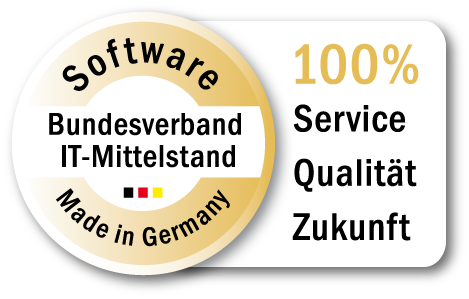BAFA's statement on the complaints procedure under the Supply Chain Act
The “Act on Corporate Due Diligence in Supply Chains” (or Supply Chain Act) came into force on 1 January 2023 for companies with more than 3,000 employees in Germany. This law obliges companies to take certain measures to prevent or remedy the violation of human rights and the occurrence of environmental hazards. The Federal Office of Economics and Export Control (“BAFA“) has issued several papers to concretise the obligations under the Act: among others, it published a handout on the complaints procedure pursuant to 8 and 9 Supply Chain Act in November 2022.
Table of Contents
BAFA implements the Supply Chain Act and monitors whether the companies concerned adequately fulfil the statutory due diligence obligations.
The specific responsibilities in this regard include:
- to verify that companies comply with their reporting obligations
- to carry out inspections
- to detect, eliminate and prevent infringements
- to impose periodic penalty payments and fines
In order to support companies in implementing their due diligence obligations, BAFA develops and publishes handouts.
We have summarised the most important contents and recommendations of the Guide for Complaints Procedure for you in this article.
Only if the mechanism of the complaints procedure along the entire supply chain works, companies can be sure that no violation of the specified twelve human rights or eight environmental risks occurs, that a violation that has already occurred remains without remedial action or that a sufficient probability of such a violation is excluded.
Implementation Complaints Procedure: Due diligence under the Supply Chain Act
According to § 8 and 9 of the Supply Chain Act, companies must establish a complaints procedure that allows for the confidential reporting of human rights and environmental violations that may arise in connection with the economic activities of a company and its direct and indirect suppliers.
According to BAFA, companies should create an early warning system that ideally prevents damage to people and the environment. Affected persons should have the opportunity to take remedial action if a violation has occurred or threatens to occur. What happens if a risk of a human rights violation or an environmental hazard has not yet occurred? In this case, companies are obliged under § 6 Supply Chain Act to take preventive measures to avoid immediate violations. If the reported violations are confirmed, companies are obliged to stop or minimise violations through remedial measures according to § 7 Supply Chain Act.

Accessibility of the complaints procedure
The complaints procedure must be accessible to both internal and external complainants. The most important addressees are persons in the company or its supply chain who are potentially affected by human rights or environmental violations. They are to be identified in the risk analyses that companies are required to conduct on a regular basis under § 6 (5) of the Act. For example, these may be employees of direct or indirect suppliers, or local residents of the sites. People who are not directly affected but become aware of the human rights violations or environmental hazards must also have access to these reporting channels.
According to the guide, potential barriers to access should be identified in advance and taken into account when designing the procedure. This is to ensure that the target groups are aware of the complaints procedure and can use it. In order to take individual needs into account, the target groups or their representatives should already be consulted in the design phase of the procedure. It should be considered that barriers to access may vary depending on the group concerned and may be high for vulnerable groups such as illiterate people or especially children. Therefore, it may be necessary to create different channels for submitting a complaint, e.g. online, by phone or through local contacts.
To provide more clarity for companies, the document offers some examples of measures that might be needed to reduce certain access barriers: If there are language barriers, the information should be translated into the respective national languages. If a procedure involves costs, free alternatives should be offered. If persons with limited literacy are concerned, information in the form of illustrated posters could be placed on site. To increase confidence in the procedure, measures can be taken to ensure anonymity or direct contact persons can be provided.
Companies must create accessibility options that are appropriate according to the nature and scope of their business activities and the associated risks. The more human rights and environmental risks a company has identified in its risk analysis, the greater the reasonable effort required to ensure accessibility for those affected. The individual implementation is always at the discretion of the company.
Further requirements for the complaints procedure
According to § 8 para. 2 German (Supply Chain Act), companies must give themselvesRules of Procedure for complaints management in text form and make them publicly accessible. In the handout on the contents of the companies’ guideline, BAFA lists that they particularly have to provide information on:
- the types of complaint
- the accessibility
- the course of the complaints procedure
- the possibilities of amicable dispute resolution
- the competent contact persons and
- the safeguards to avoid negative consequences
The design and communication of the Rules of Procedure also need to consider the requirements of the target groups of the procedure. The information should be clear and concise, prepared in the relevant languages, easy to find and accessible.
Subsequently, companies must create the internal conditions to ensure that the persons responsible for conducting the complaints procedure can act impartially. These persons must be independent, not bound by any instructions and obliged to maintain confidentiality. Furthermore, the persons responsible should be adequately trained and have sufficient time to assess the reported problems.
The complaint procedure
The BAFA guidelines also contain specifications on the course of the complaint procedure.
- When complaints are received, complainants should be informed of the receipt of the complaint as well as the steps, the timing of the procedure and their rights in terms of protection from adverse action or punishment.
- Consideration should then be given to whether the complaint falls within the scope of the procedure.
- If a complaint is rejected, the reasons should be given to the person making the complaint.
- If the complaint falls within the scope, the contact person should discuss the matter with the complainant in order to understand the facts better. On this basis, a remedy proposal should be developed and, if necessary, agreements on redress should be made.
- The next step is to implement the measures.
- The effectiveness of the procedure should be reviewed annually and as needed, and adjusted if necessary.
Protection of complainants
In order for the complaints procedure to be used by affected persons, the confidentiality of their identity as well as protection against repercussions must be guaranteed. Therefore, companies should take precautions to keep the identity of complainants confidential and to protect personal data. BAFA recommends using an anonymous procedure.
Furthermore, companies must take appropriate measures to ensure that complainants are not disadvantaged or penalised because of their complaints.

For example, companies can outline specific consequences in the rules of procedure that employees or suppliers can expect if complainants are threatened with reprisals as a result of a complaint.
Conclusion on BAFA's statement on the complaints procedure
BAFA’s statement on the complaints procedure contains important information on the requirements and the structure of the complaints procedure prescribed by the German Supplay Chain Act. In particular, the requirements for processing complaints and the position of the internally responsible persons are largely congruent with those of the Whistleblower Protection Act. This means that companies can bundle responsibilities here and build up know-how at one point in the company. For companies that are obliged to comply with the Supply Chain Act as of 1 January 2023, the requirements and recommendations come too late. The required consultation of affected groups in the supply chain to include their specific requirements in the design of the procedure is unrealistic before the obligations come into force.
Would you like to learn more about how to introduce an appropriate complaints procedure (compliant with the German Supply Chain Act) in your company easily and efficiently? Use the button to arrange a non-binding demo meeting.





















